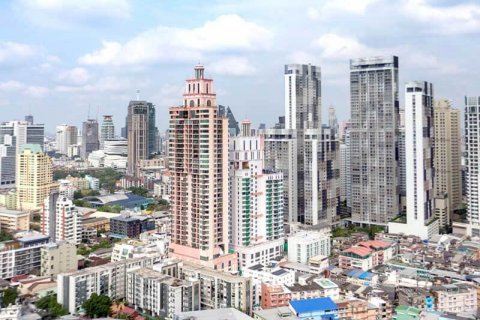
SukhothaiResidences was the first wave of hotel-managed projects. The luxury condominium, built in 2010, provided residents with an upscale lifestyle, including access to amenities at the Sukhothai Bangkok Hotel.
It was a groundbreaking agreement that helped pave the way for future brand residence agreements in the Thai capital in the 2010s. However, SukhothaiResidences also serves as a vivid reminder of the problems that home ownership can cause in projects of this type.
There were many legal disputes between the management company and the developer Grace Ivory. One of the most noticeable problems is the struggle for a branded accommodation agreement.
In May, the developer decided to rename SukhothaiResidences, naming it Grape Ivory Residence. According to the apartment owners, this was done without their participation and could cause confusion among residents and even possibly damage the value of the property.
As part of the renaming, those who live in the building have lost access to the amenities at the Sukhothai Bangkok Hotel, as well as discounts, which are the basis of branded accommodation agreements in hotel-related projects. HK Resorts International claims that this was done after the apartment owners refused to renew the facilities management contract with their subsidiary. Residents do not agree with this decision.
Most hotel management agreements don't last forever. These are management contracts between the hotel business operator and the developer or the legal counsel for construction, designed for a certain number of years. They can, of course, be expanded. Although this is not guaranteed.
What is happening with SukhothaiResidences is a perfect example of what can be expected in such a case if you are considering purchasing an apartment in one of these projects.
Projects with hotel management offer many properties and privileges, but Thai legislation has not yet developed a structure protecting such projects.
